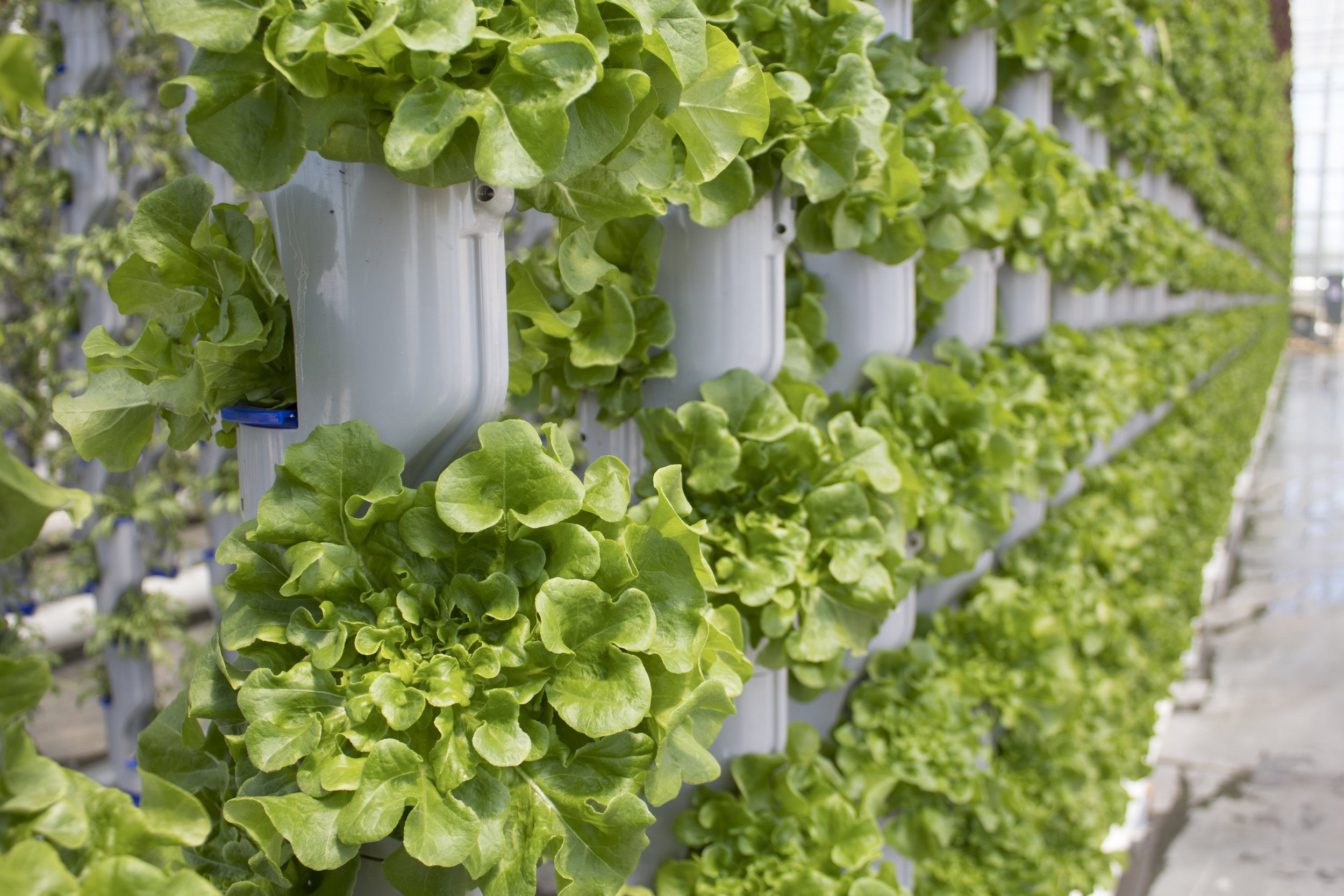How to Create a Locally-Grown Produce Supply Chain with Eden Green
Consumer interest in locally-grown organic produce has seen a significant rise. More people are seeking fresh, sustainable options that support local economies. This shift presents a valuable opportunity for grocers.
Local sourcing is not just a trend; it's a commitment to quality and community. For grocers, it means providing produce that meets the high standards of today’s informed consumers. The benefits are clear: fresher food, reduced environmental impact, and a boost to the local economy. Consumers appreciate the transparency. They also love the enhanced taste of produce harvested at peak ripeness close to home.
Understanding Locally-Grown Produce
Let's explore what truly defines locally-grown produce. Clarity will help grocers and consumers align on expectations and values.
What Constitutes Locally-grown Produce?
'Locally-grown' refers to food cultivated within the area that consumers consider local. Standards for what qualifies as "local" can vary. In an urban setting, it may be just a small section of the city. In rural areas, it may be the entire state or province. However, the emphasis is always on minimal transportation and community connection.
Locally-grown produce offers numerous advantages:
Freshness: Shorter time from farm to table ensures peak flavor and nutrient retention.
Support for Local Farmers: Buying local helps the agricultural community in your area.
Environmental Benefits: Reduced transport distances lower carbon footprints.
Economic Growth: Money spent locally circulates back into the community, bolstering regional development.
Market Growth Comparison
Sustainability-marketed 6-YR CAGR: 7.34%
Total Market 6-YR CAGR: 3.45%
Conventionally-marketed 6-YR CAGR: 2.76%
The Demand for Organic Produce
Today's consumers are more health-conscious and environmentally aware. The organic produce market continues to grow as a result. Recent trends show a significant increase in organic food sales. This trend reflects a strong consumer preference for products that are certified organic.
This certification assures buyers that produce contains no synthetic pesticides or GMOs. It aligns with a broader trend towards healthier lifestyle choices. However, many may not be aware that some non-organic options may be even cleaner than their certified organic counterparts. Also, organic produce may not be as sustainable as you suspect.
Partnering with Eden Green
Partnering with Eden Green offers grocers unique advantages. We can help you meet this increasing demand for clean produce.
Why Eden Green?
Eden Green Technology pioneers advanced methods in sustainable agriculture. Our state-of-the-art controlled environment agriculture (CEA) systems allow for year-round production. Our produce also meets the highest safety and quality standards. This partnership enables grocers to provide consistently fresh, locally-sourced produce their customers trust.
There are several benefits of partnering with Eden Green for locally-grown produce.
Reliability: Consistent, year-round supply regardless of seasonal changes.
Quality: Superior freshness and extended shelf life of produce.
Sustainability: Reduced water usage and minimal environmental impact.
Community Support: Strengthening local economies by sourcing locally.
Eden Green’s Approach to Sustainable Agriculture
Eden Green’s greenhouses run on controlled environment agriculture (CEA) principles. This method is transforming how produce is grown and supplied.
Controlled Conditions: We carefully control environmental factors like light, humidity, and nutrients. By doing so, Eden Green ensures optimal growth conditions for clean produce.
Reduced Resource Use: Our greenhouses are hydroponic vertical farms. They use significantly less water and land than traditional farming methods. This means our produce is a sustainable choice for the future.
Eden Green's technology aligns with the trend towards clean produce. It also enhances local food systems by:
Ensuring Local Availability: Localized production hubs mean fresher produce is available to consumers.
Supporting Healthy Standards: CEA’s controlled conditions are ideal for growing clean produce. They eliminate the need for pesticides and the risk of soil contamination.
Setting Up Your Local Supply Chain
Creating a local supply chain for organic produce requires an eye for detail. You'll need an understanding of both market demands and logistical considerations. This setup is crucial for ensuring the success of local sourcing initiatives.
Assessing Local Demand and Supply Capabilities
To effectively stock local produce, grocers must assess the market demand in their area.
Market Surveys: Conduct surveys to understand consumer preferences for organic products. You may also get this information from sales data if you already operate in the neighborhood.
Community Engagement: Engage with local consumers through forums and social media. This will help you gauge interest and request feedback on desired products.
Estimating volume and variety needs is also essential:
Sales Forecasting: Use historical sales data to predict future demand for various produce types.
Supplier Consultations: Work with local farmers to understand what is available. You need to know what can be consistently supplied throughout the year.
Logistics of a Locally-grown Produce Supply Chain
Managing the logistics of a local supply chain is crucial. You'll need to maintain the freshness and quality of your produce from farm to shelf.
Key Considerations for Transportation and Storage
Transportation: Opt for short transport routes to minimize time from farm to store. Short transit times help preserve freshness.
Storage Facilities: Ensure facilities can maintain optimal conditions for various produce needs. They'll need to manage controlled temperatures and humidity levels.
Strategies to Maintain Freshness and Quality
Regular Deliveries: Arrange for more frequent deliveries. This will help avoid long storage times and reduce spoilage.
Quality Control Systems: Implement rigorous quality checks upon arrival. You'll want to inspect all produce before it's displayed on shelves.
A flow chart detailing the steps involved in setting up a local supply chain.
Marketing Locally-grown Produce
Successfully marketing locally-grown produce can differentiate a grocer in a competitive market. You'll need strategies for using local sourcing to enhance brand value and engage customers.
Branding and Positioning for Grocers
Marketing locally-grown produce effectively starts with strong branding.
Highlight Local Partnerships: Showcase your relationships with local farmers on packaging and promotions.
Emphasize Freshness and Quality: Highlight the benefits of local sourcing. Use these attributes in marketing campaigns.
Using local sourcing as a brand enhancer:
Storytelling: Share local farmers' stories and practices in your marketing materials. This can help create a connection with consumers.
Sustainability Claims: Promote the environmental benefits of local sourcing. Note reduced carbon footprints, which resonate well with today’s eco-conscious shoppers.
Educational Campaigns and Community Engagement
You'll need to educate consumers about the benefits of locally-grown produce. This is crucial for increasing demand and loyalty.
Strategies to Educate Consumers
In-Store Displays: Incorporate educational materials into your in-store displays. Explain the benefits of locally sourced produce.
Workshops and Tastings: Host events for consumers. Let them experience the quality and flavor of local produce first-hand. These may include simple tasting booths or even cooking classes and recipe swaps.
Examples of Successful Community Engagement and Education Campaigns
Farmer Meet-and-Greets: Organize events where farmers can talk directly with consumers. They can discuss their products and farming methods.
School Partnerships: Collaborate with local schools to provide healthy, locally sourced meals. Help educate students about where their food comes from.
Challenges and Solutions in Local Sourcing
Navigating the hurdles of local sourcing is key for grocers. You will need a reliable supply chain for locally-grown produce.
Common Challenges Faced by Grocers
Grocers often face several key challenges when sourcing locally:
Seasonal Variations: Availability of certain produce can fluctuate. This affects planning and menu consistency.
Pricing Issues: Local products can sometimes be more expensive. This may be due to smaller-scale operations.
Supply Consistency: You must ensure a steady supply of diverse products throughout the year.
Solutions to overcome these challenges
Diverse Supplier Networks: Build relationships with multiple local farms. This can bring your store a steady supply of various products.
Flexible Menu Planning: Adapt offerings based on seasonal availability to manage consumer expectations.
Volume Contracts: Secure contracts that guarantee a set price over time. This will help you manage cost fluctuations.
Leveraging Technology and Innovation
Technology and innovation play critical roles. They can help enhance the efficiency and sustainability of locally-grown produce supply chains. Here's how:
Inventory Management Systems: Use advanced software to track stock levels. They can also predict demand and help you manage orders more efficiently.
Transportation Logistics: Implement GPS and route optimization software. This will help reduce delivery times and costs.
Look for suppliers that use the latest technology to grow fresh, healthy foods. This may include:
Automated Greenhouses: These use controlled environment agriculture (CEA) technologies. They produce more food with less space and water.
Precision Agriculture: Some growers employ sensors and IoT devices. These can monitor plant health and optimize resource use. They help ensure higher yields and sustainable practices.
Securing a Sustainable Future
Consumer demand for locally-grown produce will likely continue to rise. Grocers have a unique opportunity to enhance their offerings and support sustainable practices. Grocers can meet this challenge by establishing a robust local supply chain with Eden Green. They can ensure a consistent, high-quality selection that reduces environmental impacts.
Partner with Eden Green to leverage our advanced technologies and extensive network. Together, we can satisfy the growing demand for sustainable, locally sourced produce. Start building your local supply chain today and tap into the benefits of a thriving market for organic and locally-grown foods.






